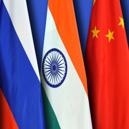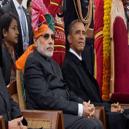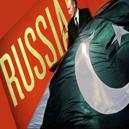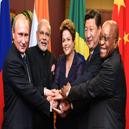В статье рассматриваются отношения России и Пакистана в XXI в. с акцентом на последние два года, когда существенно увеличились разнообразные связи двух стран, в первую очередь началось военно-техническое сотрудничество, что ознаменовало принципиально новый этап в отношениях наших двух государств. Поворот России лицом к Востоку и к Пакистану, в частности, был связан в немалой степени с введением западных санкций после присоединения Крыма. Важной составной частью расширения связей стала продажа Пакистану ударных вертолетов Ми-35, а также подписание Соглашения о сооружении магистрального газопровода Карачи-Лахор стоимостью свыше 2 миллиардов долларов. Пакистанская сторона ожидает приезда президента России В. В. Путина на закладку первого камня в реализацию этого глобального проекта.
Russian-Pakistani relations: yesterday, today, tomorrow
The article is devoting to the analysis of the Russian-Pakistan relations in the 21st century emphasizing the last two years, when the ties between our countries diversified significantly first of all in the defence field. It has inaugurated a new era in the cooperation between Russia and Pakistan. The Russian turn from the West to the Orient, especially to Pakistan has been resulted of the Western sanctions after Crimea adjunction to Russia. The main point in this process became a sale of Russian combat helicopters Mi-35M and signing an Agreement on the construction of the trunking pipe-line between Karachi and Lahore with the cost of $2.5 bln. The Pakistani side is waiting Russian President Vladimir Putin for the ceremony of foundation of this global project.
 Ранний опыт государственного строительства большевиков и Конституция РСФСР 1918 года
Ранний опыт государственного строительства большевиков и Конституция РСФСР 1918 года
 7
7
 25481
|
Официальные извинения
25481
|
Официальные извинения
 972
972
 106276
|
Становление корпоративизма в современной России. Угрозы и возможности
106276
|
Становление корпоративизма в современной России. Угрозы и возможности
 239
239
 85168
85168







